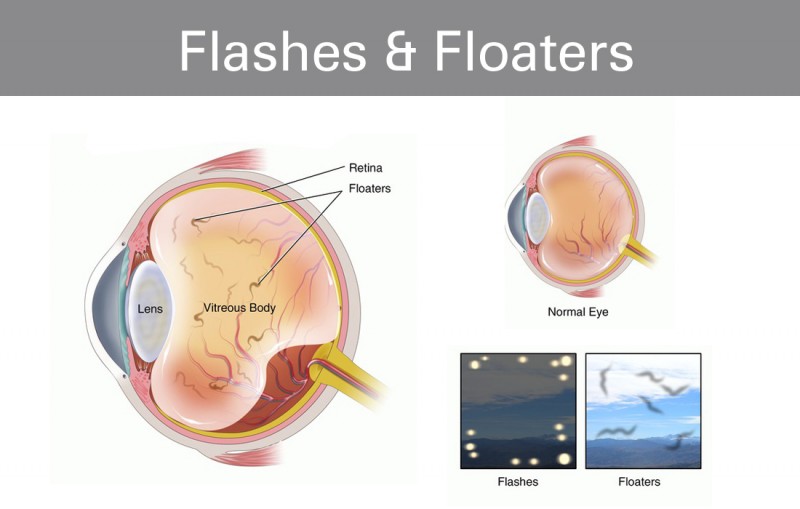Uncovering Tinnitus Triggers and Causes

The Mysterious World of Tinnitus Tinnitus, a condition characterized by persistent ringing, buzzing, or other sounds in the ears, continues to puzzle medical professionals and affect millions worldwide. Despite its prevalence, the causes of tinnitus remain unclear, making diagnosis and treatment challenging. Unraveling the Enigma of Tinnitus Tinnitus affects millions worldwide, yet its causes remain shrouded in mystery. This pervasive condition disrupts daily life, causing discomfort, anxiety, and stress for those afflicted. The World Health Organization estimates that over 700 million people globally experience tinnitus, emphasizing the urgent need for comprehensive understanding. Why Understanding Tinnitus Matters Understanding the reasons behind tinnitus is crucial for effective management and treatment. By identifying triggers and causes, healthcare professionals can develop targeted therapies to alleviate symptoms and improve quality of life. This knowledge also enables individuals to take preventive measures, reducing their risk of developing tinnitus. Exploring Known Triggers and Causes This article delves into the known triggers and causes of tinnitus. While research continues to uncover new factors, several key elements have been identified: Noise-Induced Hearing Loss Prolonged exposure to loud noises, whether occupational or recreational, is a significant contributor to tinnitus. Sound levels exceeding 85 decibels can damage hair cells in the inner ear, leading to tinnitus. Aging and Hearing Loss Presbycusis, age-related hearing loss, often accompanies tinnitus. As individuals age, their auditory system deteriorates, increasing the likelihood of tinnitus. Earwax Buildup and Inner Ear Problems Blockages in the ear canal, such as excessive earwax, can cause tinnitus. Inner ear disorders like Meniere's disease and otosclerosis also contribute to its development. Medications and Ototoxicity Certain medications, including antibiotics, aspirin, and chemotherapy, can damage the inner ear, leading to tinnitus. Stress, Anxiety, and Depression Psychological factors play a significant role in tinnitus severity. Stress, anxiety, and depression can exacerbate symptoms. Other Medical Conditions Various health conditions, such as high blood pressure, thyroid disorders, and multiple sclerosis, have been linked to tinnitus. Conclusion Tinnitus remains a complex and multifaceted condition, requiring continued research and understanding. By exploring its triggers and causes, we move closer to effective management and treatment options. If you or someone you know experiences tinnitus, consult a healthcare professional for personalized guidance and support.
Common Causes of Tinnitus
Tinnitus, a condition characterized by ringing, buzzing, or other sounds in the ears, affects millions worldwide. While its exact causes can vary, research has identified several common triggers. Understanding these underlying factors is crucial for effective management and treatment.
1. Exposure to Loud Noises
Prolonged exposure to loud sounds, whether from concerts, construction sites, or recreational activities, can damage the delicate hair cells in the inner ear. This damage disrupts normal sound processing, leading to tinnitus. Protecting your hearing with earplugs or earmuffs in loud environments is vital.
2. Aging and Hearing Loss
As we age, our hearing ability naturally declines. Age-related hearing loss, or presbycusis, can contribute to tinnitus. Changes in the auditory system, including reduced sensitivity to sound and altered brain processing, increase the risk of developing tinnitus.
3. Earwax Buildup or Ear Infections
Earwax blockages or infections can irritate the eardrum and surrounding tissues, triggering tinnitus. Maintaining good ear hygiene and seeking medical attention for infections can help prevent these issues.
4. Certain Medications
Ototoxic medications, including certain antibiotics, aspirin, and chemotherapy drugs, can damage the inner ear or auditory nerve. This damage may result in tinnitus. If you experience symptoms while taking medication, consult your healthcare provider.
5. Head or Neck Injuries
Trauma to the head or neck can affect the nerves and blood vessels surrounding the inner ear, leading to tinnitus. In some cases, temporomandibular joint (TMJ) disorders or jaw misalignment may also contribute.
6. High Blood Pressure and Cardiovascular Diseases
Research suggests a link between cardiovascular health and tinnitus. High blood pressure, hypertension, and poor circulation may alter blood flow to the ears, contributing to tinnitus.
7. Meniere's Disease and Other Inner Ear Disorders
Meniere's disease, a disorder affecting balance and hearing, often includes tinnitus as a symptom. Other inner ear conditions, such as otosclerosis or labyrinthitis, can also contribute to tinnitus.
Recognizing these common causes is the first step toward addressing tinnitus. If you're experiencing persistent or bothersome tinnitus, consult a healthcare professional for personalized guidance and treatment.
Lifestyle Factors Contributing to Tinnitus While tinnitus is often associated with age-related hearing loss or exposure to loud noises, several lifestyle factors can contribute to its development or exacerbation. Understanding these factors can help individuals take preventive measures and manage their symptoms effectively. Prolonged Music Exposure through Headphones Prolonged music exposure through headphones is a significant contributor to tinnitus. Listening to loud music through earbuds or headphones can damage the hair cells in the inner ear, leading to tinnitus. This is particularly prevalent among musicians, music enthusiasts, and individuals who frequently use headphones for extended periods. Prevention Tips: Keep the volume low. Take regular breaks. Use noise-cancelling headphones. Stress and Anxiety Stress and anxiety can exacerbate tinnitus symptoms. When we're under stress, our body's "fight or flight" response is triggered, leading to increased heart rate and blood pressure. This can worsen tinnitus. Management Strategies: Practice relaxation techniques (meditation, deep breathing). Engage in regular exercise. Seek professional help when needed. Smoking and Nicotine Consumption Smoking and nicotine consumption can damage blood vessels, including those in the ears, leading to tinnitus. Nicotine also increases the risk of hearing loss. Quitting Strategies: Seek professional help. Use nicotine replacement therapy. Join support groups. Caffeine and Salt Intake Excessive caffeine and salt consumption can affect blood flow to the ears, worsening tinnitus symptoms. Healthy Habits: Limit caffeine intake. Reduce salt consumption. Stay hydrated. Poor Dietary Habits A diet lacking essential nutrients can contribute to tinnitus. Foods high in sugar, salt, and unhealthy fats can exacerbate symptoms. Nutritional Tips: Eat a balanced diet rich in fruits, vegetables, and whole grains. Include zinc-rich foods (oysters, spinach). Stay hydrated. Conclusion By understanding and addressing these lifestyle factors, individuals can reduce their risk of developing tinnitus or alleviate its symptoms. Making conscious choices about music exposure, stress management, and a healthy lifestyle can significantly impact overall hearing health.
Medical Conditions Linked to Tinnitus
Tinnitus, the persistent ringing, buzzing, or hissing sound in the ears, can be triggered by various medical conditions. Understanding these underlying causes is crucial for effective management and treatment. Let's delve into some of the key medical conditions linked to tinnitus:
1. Ototoxicity (Certain Chemicals or Medications)
Certain medications and chemicals can damage the inner ear or auditory nerve, leading to tinnitus. Ototoxic substances include:
- Antibiotics (e.g., gentamicin, streptomycin)
- Cancer medications (e.g., cisplatin)
- Diuretics (e.g., furosemide)
- Aspirin and other nonsteroidal anti-inflammatory drugs (NSAIDs)
2. Acoustic Neuroma (Benign Tumor)
An acoustic neuroma, a non-cancerous tumor growing on the nerve connecting the inner ear to the brain, can cause tinnitus. This tumor can press on the auditory nerve, disrupting sound transmission.
3. Thyroid Disorders
Both hypothyroidism (underactive thyroid) and hyperthyroidism (overactive thyroid) have been linked to tinnitus. Hormonal imbalances can affect the auditory system, leading to ringing or buzzing sounds.
4. Autoimmune Diseases
Conditions like rheumatoid arthritis, lupus, and multiple sclerosis can increase the risk of developing tinnitus. Inflammation and immune system dysregulation may damage the auditory system.
5. Temporomandibular Joint (TMJ) Disorders
TMJ disorders, affecting the joint that connects the jawbone to the skull, can lead to tinnitus. Jaw misalignment, teeth grinding, or TMJ inflammation may irritate the nerves surrounding the ear.
Identifying and addressing underlying medical conditions can help alleviate tinnitus symptoms. If you're experiencing persistent ringing or buzzing sounds, consult a healthcare professional to rule out any underlying conditions.
The Importance of Proper Diagnosis
When it comes to effectively managing tinnitus, proper diagnosis plays a crucial role. A thorough diagnosis not only helps identify the underlying causes of tinnitus but also enables healthcare professionals to develop a personalized treatment plan. In this section, we will explore the significance of consulting an audiologist or ENT specialist, undergoing hearing tests and medical evaluations, and ruling out underlying medical conditions.
Consulting an Audiologist or ENT Specialist
Tinnitus diagnosis often requires specialized expertise, making it essential to consult an audiologist or an ear, nose, and throat (ENT) specialist. These professionals possess in-depth knowledge of auditory and vestibular disorders, enabling them to accurately assess and diagnose tinnitus. During the consultation, they will typically inquire about your medical history, lifestyle, and symptoms to identify potential triggers.
Undergoing Hearing Tests and Medical Evaluations
To determine the underlying cause of tinnitus, audiologists and ENT specialists employ various diagnostic tools and tests, including:
- Pure-tone audiometry to assess hearing sensitivity
- Otoacoustic emission testing (OAE) to evaluate inner ear function
- Speech audiometry to assess speech recognition and comprehension
- Middle ear function tests, such as tympanometry and acoustic reflex testing
- Imaging studies (e.g., MRI or CT scans) to rule out structural abnormalities
- Medical evaluations to identify potential underlying conditions (e.g., hypertension, diabetes, or thyroid disorders)
Ruling Out Underlying Medical Conditions
Tinnitus can be a symptom of various underlying medical conditions. To provide effective treatment, it's crucial to rule out or address these conditions. Some common underlying medical conditions that may contribute to tinnitus include:
- Earwax buildup or blockages
- Ear infections (e.g., otitis media or otitis externa)
- Middle ear problems (e.g., otosclerosis or eustachian tube dysfunction)
- Meniere's disease
- Acoustic neuroma or other tumors
- Certain medications (e.g., antibiotics, aspirin, or certain antidepressants)
- High blood pressure, diabetes, or thyroid disorders
- Temporomandibular joint (TMJ) disorders
By undergoing thorough diagnostic evaluations and ruling out underlying medical conditions, individuals with tinnitus can receive targeted treatment and management strategies to alleviate their symptoms and improve their quality of life.
Finding Relief from Tinnitus
Tinnitus can be a debilitating condition, affecting every aspect of daily life. However, there is hope for relief. Various treatment options and strategies can help manage tinnitus symptoms, improving overall quality of life. In this section, we will delve into the most effective ways to find relief from tinnitus.
Sound Therapy and Cognitive Behavioral Therapy
Sound therapy and cognitive behavioral therapy (CBT) are two of the most effective treatments for tinnitus. Sound therapy involves exposure to specific sounds to help desensitize the brain to tinnitus. This can be achieved through:
- Masking devices: Producing soothing sounds to mask tinnitus
- Notched music therapy: Customized music with specific frequency notches to reduce tinnitus severity
- White noise machines: Generating constant, even sounds to minimize tinnitus perception
Cognitive behavioral therapy, on the other hand, focuses on changing the emotional response to tinnitus. CBT helps individuals:
- Reframe negative thoughts and emotions associated with tinnitus
- Develop coping strategies and stress management techniques
- Improve sleep quality and reduce anxiety
Lifestyle Modifications and Stress Management
Making lifestyle changes and managing stress can significantly alleviate tinnitus symptoms. Consider the following:
- Regular exercise: Improves overall health and reduces stress
- Healthy diet: Avoid trigger foods and focus on nutrient-rich meals
- Stress reduction techniques: Meditation, yoga, or deep breathing exercises
- Relaxation methods: Progressive muscle relaxation or visualization
- Sleep schedule management: Establish a consistent sleep routine
Medical Treatments and Surgical Options
In some cases, medical treatments or surgical interventions may be necessary. These include:
- Medications: Antidepressants or anxiety medications to manage related symptoms
- Cochlear implants: For severe hearing loss and tinnitus
- Tinnitus retraining therapy (TRT): Combines sound therapy and CBT
- Transcranial magnetic stimulation (TMS): Stimulates brain areas responsible for tinnitus
Support Groups and Community Resources
Connecting with others who understand the challenges of tinnitus can be incredibly beneficial. Join:
- Support groups: Online forums or local in-person meetings
- Tinnitus organizations: American Tinnitus Association or Tinnitus Foundation
- Online communities: Social media groups or specialized forums
Remember, finding relief from tinnitus requires patience, persistence, and a comprehensive approach. Consult a healthcare professional to determine the best course of treatment for your specific needs.
Conclusion: Taking Control of Tinnitus
As we conclude our journey behind the buzz of tinnitus, it's essential to recognize that understanding its causes is merely the first step towards effective management. By acknowledging the underlying factors that contribute to this debilitating condition, individuals can embark on a path towards alleviation and relief.
The Power of Knowledge in Tinnitus Management
Empowering oneself with knowledge is crucial in the fight against tinnitus. Recognizing the triggers and causes, from exposure to loud noises and underlying medical conditions to stress and certain medications, enables individuals to make informed decisions about their treatment.
Seeking Professional Help: The Key to Alleviation
While self-awareness is vital, it's equally important to seek professional help from healthcare experts and audiologists. They can provide personalized guidance, support, and treatment options tailored to address the specific underlying causes of tinnitus.
Taking the First Step towards a Quieter Life
By addressing the root causes of tinnitus and seeking professional help, individuals can significantly alleviate their symptoms. This empowerment through knowledge and action marks the beginning of a quieter, more peaceful life.
In conclusion, tinnitus management requires a proactive approach, combining self-awareness, professional guidance, and a commitment to addressing underlying factors. Take the first step today, and embark on the journey towards a life free from the constant buzz of tinnitus.















Comments ()